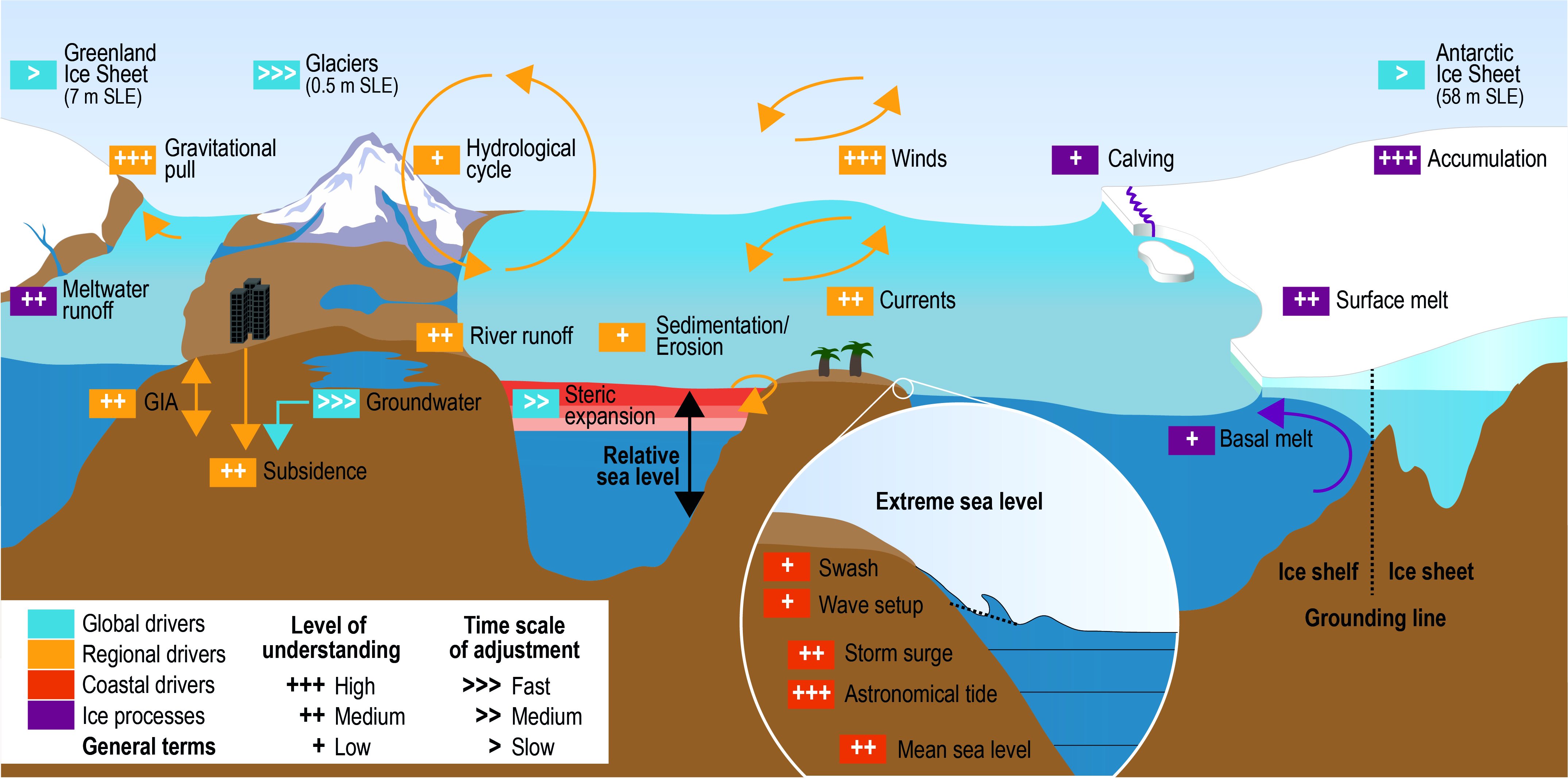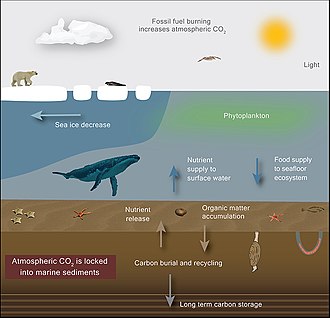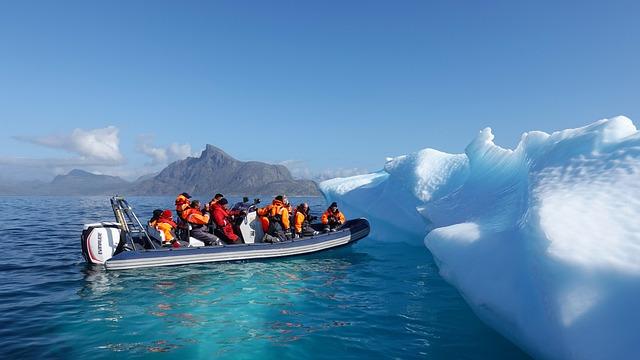In a world where even fish are feeling the heat, climate change is making waves in our oceans. From lost clownfish parties to seaweed fashion trends, the impact of rising temperatures on marine ecosystems is making a splash in the science world. So grab your snorkel and let’s dive deep into how global warming is turning our underwater world upside down!
Examining the Rising Sea Temperatures
So, it turns out that the sea temperatures are rising faster than temperatures on a first date after three glasses of wine. And we all know what that means – the ocean is getting hotter than a Kardashian trying to break the internet with a selfie.
Scientists are scratching their heads (and probably sweating profusely) trying to figure out what’s causing this sudden spike in sea temperatures. Some say it’s due to climate change, while others blame it on the fact that all the fish are doing underwater hot yoga sessions.
One thing’s for sure, if we don’t cool down the ocean soon, we’ll be seeing mermaids selling sunscreen and dolphins running ice cream shops on the beach. And no one wants to deal with that level of aquatic entrepreneurship.
- Maybe we should start a petition to get all the whales to collectively blow bubbles to cool things down a bit. It worked in that one episode of SpongeBob, right?
- Or we could hire a team of penguins to do synchronized swimming routines in the Arctic to restore balance to the sea temperatures. Who says penguins can’t multitask?
Shifts in Marine Species Distributions
Have you noticed something fishy happening in the ocean lately? That’s right, marine species distributions are shifting faster than you can say “humpback whale”! It’s like a game of musical chairs out there, with species swapping seats quicker than you can say “dolphin in distress.”
From warm-water species moving to cooler waters to cold-water creatures seeking warmer habitats, marine life is on the move like never before. It’s like a marine version of “The Great Migration,” except instead of wildebeests and zebras, we have swordfish and sea turtles leading the charge.
So, why are these shifts happening? Well, some scientists blame climate change for throwing off the delicate balance of ocean ecosystems. Others point to overfishing and pollution as the culprits behind these aquatic game of musical chairs. Whatever the reason, one thing is for sure: the oceans are definitely feeling the effects of these .
As we navigate through these uncharted waters (pun intended), it’s important to keep a close eye on these changes and do our part to protect the marine species that call the ocean home. After all, we don’t want to end up with a marine version of “The Hunger Games” where only the fittest species survive. Let’s all do our part to ensure a harmonious and balanced ocean ecosystem for generations to come!

Effects of Ocean Acidification on Coral Reefs
**The Impact on Coral Reefs**
When it comes to ocean acidification, coral reefs are like a delicate flower in a storm. The acidic waters make it difficult for coral polyps to build their calcium carbonate skeletons, leading to weakened and bleached coral reefs. These once vibrant underwater cities are now resembling more of a ghost town, with their inhabitants fleeing for better conditions.
**Decreased Biodiversity**
With the decline in coral health, the diversity of marine life that calls these reefs home is also taking a hit. Fish, crustaceans, and other critters that rely on the coral for food and shelter are finding their homes disappearing before their very eyes. It’s like trying to throw a party with no guests showing up – a sad sight indeed.
**Economic Implications**
Not only are coral reefs crucial for marine biodiversity, but they also play a significant role in the economy. With tourism industries relying on these beautiful underwater landscapes for their livelihoods, the decline in coral reefs due to ocean acidification could have devastating effects on local economies. It’s like losing your job and your favorite vacation spot all in one fell swoop – a double whammy of disappointment.

Implications of Melting Sea Ice on Arctic Ecosystems
As the ice in the Arctic continues to melt at an alarming rate, the implications for the delicate ecosystems in the region are quite dire. Here are some of the hilarious consequences:
1. Polar bear unemployment: With their hunting grounds disappearing, polar bears are finding it increasingly difficult to find food. Many have resorted to extreme measures, such as applying for jobs at the local seal buffet.
2. Seals throwing beach parties: With more open water available, seals are taking advantage of the situation by throwing epic beach parties. They’re inviting all their friends – from walruses to narwhals – for a good time in the sun.
3. Whales taking up gardening: As the ice melts, more and more whales are turning to gardening as a hobby. They’re growing sea lettuce, kelp, and even the occasional jellyfish. Who knew whales had such green thumbs?

Challenges Faced by Marine Organisms in Adaptation
Marine organisms have to deal with a whole bunch of challenges in order to adapt to their aquatic environment. It’s not all just fun and games in the ocean, you know! Here are some of the struggles they face:
First off, imagine trying to find true love in the vast ocean when you can’t even see two feet in front of you. That’s the reality for many marine organisms who rely on sight to find a mate. Blind dates take on a whole new meaning when you’re a fish!
Another challenge is dealing with the constant pressure of fitting in with the rest of the marine crowd. It’s not easy being a lone shrimp in a sea of whales, let me tell you. Peer pressure is real, even underwater!
And let’s not forget about the struggle of staying afloat in a world where buoyancy is key. Some marine organisms have to work extra hard to keep from sinking to the ocean floor like a rock. Talk about a weighty issue!
Mitigation Strategies for Protecting Marine Biodiversity
When it comes to protecting our marine biodiversity, we have to be proactive in implementing mitigation strategies. One way to do this is by establishing marine protected areas where marine life can thrive without human interference. These areas act as safe havens for various species, giving them the chance to flourish and maintain their populations.
Another important strategy is to regulate fishing practices to prevent overfishing and bycatch. This can be done by implementing quotas, enforcing regulations, and promoting sustainable fishing practices. By ensuring that we are not depleting marine resources, we can help protect the delicate balance of marine ecosystems.
Furthermore, reducing pollution in our oceans is crucial in safeguarding marine biodiversity. This includes properly disposing of waste, reducing plastic usage, and minimizing runoff from land. By keeping our oceans clean and healthy, we can help preserve the habitats of countless marine species.
Overall, it’s important to remember that protecting marine biodiversity is not just about saving cute sea creatures – it’s about maintaining the health of our planet as a whole. By taking proactive steps to mitigate threats to marine life, we can ensure a sustainable future for generations to come.
FAQs
Why are marine ecosystems important?
Because they’re the hipster of the Earth’s ecosystems – always changing, always adapting, and always looking cool while doing it.
How does climate change affect marine ecosystems?
Imagine you’re at a party and the temperature suddenly spikes – everyone starts sweating, the snacks start wilting, and the mood just isn’t the same. That’s basically what climate change does to marine ecosystems.
What are some specific impacts of climate change on marine life?
Well, it’s like giving marine life a bad hair day every day – acidity levels rise, temperature swings get wild, and habitats start disappearing faster than your favorite pair of socks.
Can marine ecosystems recover from the effects of climate change?
Recovery is possible, but it’s like trying to put a broken vase back together - it takes time, patience, and a whole lot of effort. But hey, where there’s a will, there’s a way!
What can we do to help protect marine ecosystems from the impacts of climate change?
Think of it like being the designated driver for Mother Nature - reduce your carbon footprint, support sustainable practices, and spread the word like it’s the latest gossip. Let’s show some love to our marine friends!
—
Don’t Let Our Oceans Turn into Hot Tubs!
Well folks, it’s clear that climate change is having a major impact on our marine ecosystems. From melting ice caps to disappearing coral reefs, our oceans are in trouble. But fear not! We can all take small steps to help combat climate change and protect our precious underwater friends. So let’s all do our part to reduce our carbon footprint and keep our oceans cool. Because nobody wants to swim in a hot tub filled with fish!



